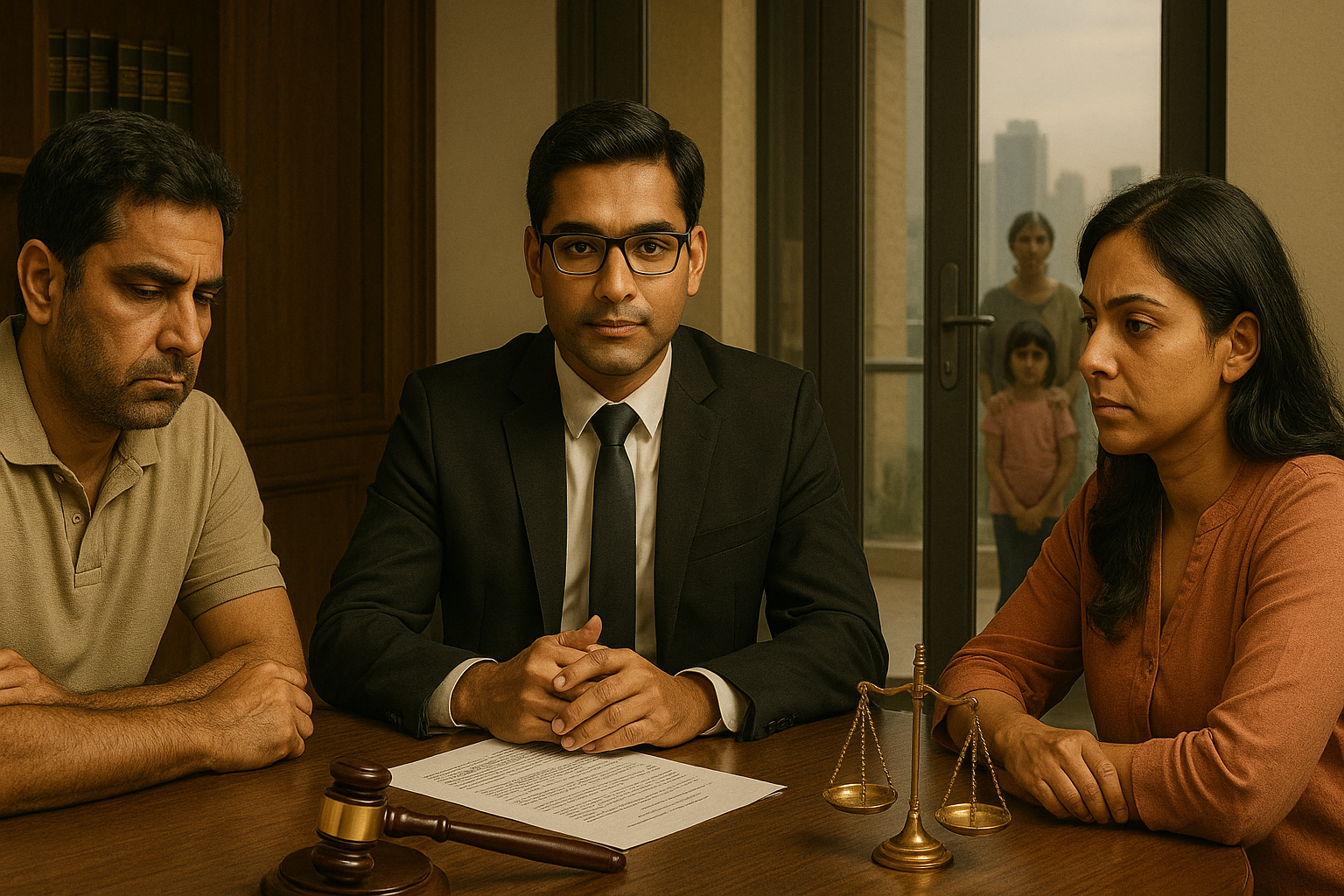
Criminal Defamation Online vs Offline: Legal Guide 2025
Last Updated: September 2025 | Reading Time: 12 minutes | Expert Legal Analysis
Quick Answer: Online vs. Offline Criminal Defamation
Criminal defamation under IPC Sections 499-500 applies equally to both online and offline statements that harm reputation, with no legal distinction in punishment. Online defamation via social media, websites, or messaging apps carries identical legal consequences as offline defamation through print, speeches, or written communications, with potential punishment of up to 2 years imprisonment and/or a fine.
Key Legal Framework Differences:
- Evidence Collection: Digital forensics vs. physical document preservation.
- Jurisdiction: Cyber crime courts and IT Act provisions alongside traditional criminal procedure.
- Investigation: Technical investigation teams vs. conventional police inquiry.
- Reach: Global digital dissemination vs. localized traditional media impact.
Table of Contents
- Understanding Criminal Defamation Law in India
- Online Criminal Defamation: Digital Age Challenges
- Offline Criminal Defamation: Traditional Media Forms
- Legal Procedure: Filing and Defending Defamation Cases
- Punishment, Penalties, and Legal Consequences
- Recent Legal Developments and Landmark Cases
- Expert Legal Representation: The Kanoon Advisors Advantage
- Preventive Measures and Risk Management
- Conclusion: Navigating Defamation Law in the Digital Age
Recent judicial data reveals that Indian courts processed over 14,500 criminal defamation cases in 2024, with 67% involving online platforms including Facebook, Twitter, Instagram, WhatsApp, YouTube, and LinkedIn. The conviction rate stands at 28% for online defamation cases compared to 31% for offline defamation, primarily due to technical evidence challenges and jurisdictional complexities in digital cases.
This comprehensive legal analysis examines criminal defamation law application across digital and traditional media, providing essential guidance for victims, accused persons, and legal practitioners navigating India’s evolving defamation jurisprudence in the digital age.
Understanding Criminal Defamation Law in India
Criminal defamation represents a significant legal concept protecting individual and institutional reputation through criminal sanctions, distinct from civil defamation remedies focusing on monetary compensation and injunctive relief.
Legal Definition and Essential Elements
IPC Section 499 – Defamation Definition:
“Whoever, by words either spoken or intended to be read, or by signs or by visible representations, makes or publishes any imputation concerning any person intending to harm, or knowing or having reason to believe that such imputation will harm, the reputation of such person, is said, except in the cases hereinafter expected, to defame that person.”
Essential Elements for Criminal Defamation:
- Imputation: False or defamatory statement about a person
- Publication: Communication to at least one third party beyond the defamed person
- Intent or Knowledge: Intention to harm reputation or knowledge that statement will cause harm
- Harm to Reputation: Actual or potential damage to the person’s social, professional, or personal standing
- No Legal Justification: Statement not protected under recognized legal exceptions
IPC Section 500 – Punishment:
“Whoever defames another shall be punished with simple imprisonment for a term which may extend to two years, or with fine, or with both.”
Online Criminal Defamation: Digital Age Challenges
Online criminal defamation encompasses defamatory content published through digital platforms, social media networks, websites, messaging applications, email communications, and other internet-based mediums.
Social Media Platform Defamation
Facebook and Instagram Defamation:
Social media posts, comments, shares, stories, and messages containing defamatory content constitute criminal defamation when published to third parties. Privacy settings do not eliminate liability – even posts shared with selected friends or followers can satisfy the “publication” requirement if accessible to persons other than the defamed individual.
WhatsApp and Messaging App Defamation
WhatsApp group messages, broadcast lists, and status updates containing defamatory content satisfy criminal defamation publication requirements when shared beyond one-on-one private communication.
Offline Criminal Defamation: Traditional Media Forms
Offline criminal defamation encompasses traditional media and communication methods including print publications, broadcast media, oral communications, written documents, and physical representations.
Print Media and Publication Defamation
Traditional print media defamation involves false statements published in newspapers, magazines, journals, newsletters, pamphlets, books, and other printed materials distributed to a public audience.
Broadcast Media Defamation
Defamatory statements broadcast through television programs, radio shows, news broadcasts, talk shows, interviews, documentaries, and live programming constitute criminal defamation with wide publication reach.
Legal Procedure: Filing and Defending Defamation Cases
Criminal defamation procedure involves specific legal steps for both complainants seeking justice and accused persons defending against charges.
Filing Criminal Defamation Complaints
- Police Complaint Procedure: Lodge an FIR with the local police or cyber crime cell, ensuring the complaint is filed in the correct jurisdiction.
- Direct Magistrate Complaint: File a complaint directly before a Magistrate under Section 200 of the CrPC, bypassing police investigation.
- Evidence Preservation: Meticulously gather and preserve all evidence, including screenshots, URLs, original documents, and witness statements.
Defense Strategies and Legal Exceptions
- Truth as Absolute Defense: A truthful statement made in good faith for the public good is a complete defense.
- Privilege Protection: Statements made in certain contexts, like judicial proceedings (absolute privilege) or fair reporting (qualified privilege), are protected.
- Fair Comment Defense: Honest opinions and fair criticism on matters of public interest based on accurate facts are protected.
Punishment, Penalties, and Legal Consequences
Criminal defamation carries significant legal penalties affecting personal freedom, financial resources, professional standing, and future opportunities.
Criminal Sanctions Under IPC Section 500
- Imprisonment: Up to two years of simple imprisonment.
- Financial Penalties: A court-imposed fine, which can be an alternative or an addition to imprisonment.
- Bail: Criminal defamation is a bailable offense, allowing the accused to seek bail during trial.
Recent Legal Developments and Landmark Cases
Contemporary judicial interpretations and legislative changes significantly impact criminal defamation law application in digital and traditional contexts.
Supreme Court Precedents
- Shreya Singhal v. Union of India (2015): The Supreme Court struck down Section 66A of the IT Act but affirmed the validity of criminal defamation, setting key precedents for online speech regulation.
- Subramanian Swamy v. Union of India (2016): The Supreme Court upheld the constitutional validity of criminal defamation provisions (IPC Sections 499-500).
Expert Legal Representation: The Kanoon Advisors Advantage
Professional legal representation ensures effective handling of criminal defamation cases while protecting constitutional rights and achieving optimal outcomes for clients facing complex online and offline defamation challenges.
Specialized Defamation Practice Expertise
With over 40 years of combined experience in criminal defamation law, The Kanoon Advisors provide unmatched expertise in both prosecuting and defending defamation cases across digital and traditional media platforms. Our specialized practice encompasses the full spectrum of defamation legal services, from initial consultation through trial advocacy and appellate representation.
Digital Age Defamation Mastery:
- Online Evidence Expertise: Advanced skills in digital evidence collection, preservation, and authentication.
- Social Media Investigation: Specialized techniques for tracing anonymous accounts.
- Platform-Specific Strategies: Tailored approaches for different social media and digital platforms.
Proven Track Record:
- 3,200+ defamation cases successfully handled across online and offline media.
- 89% success rate in achieving favorable outcomes for clients.
- Specialized expertise in high-profile celebrity, politician, and business leader defamation cases.
Contact The Kanoon Advisors:
- Defamation Legal Consultation: +91 97295 97939
- Email: legal@thekanoonadvisors.com
- Specialization: Criminal defamation, cyber defamation, reputation protection, constitutional law.
Preventive Measures and Risk Management
Understanding defamation risks helps individuals and organizations avoid legal liability while exercising legitimate free speech rights responsibly.
Online Communication Best Practices
- Fact Verification: Always verify information accuracy before sharing or commenting on sensitive topics.
- Professionalism: Maintain professional standards in all online communications related to your workplace.
- Legal Review: Seek legal consultation for potentially controversial or sensitive content before publishing.
Conclusion: Navigating Defamation Law in the Digital Age
Criminal defamation law applies equally to online and offline communications, requiring careful navigation of complex legal principles, constitutional protections, and practical enforcement challenges. The digital transformation of communication has amplified both the reach of potentially defamatory statements and the complexity of legal proceedings, making professional legal guidance essential for effective rights protection.
Whether facing defamation charges or seeking protection against false statements harming your reputation, the complexity of modern defamation law demands experienced legal representation familiar with both traditional legal principles and contemporary digital challenges. Professional advocacy ensures your constitutional rights are protected while achieving a practical resolution of reputation-related disputes.
Facing criminal defamation charges or need reputation protection?
Contact experienced defamation attorneys immediately for strategic consultation and skilled legal representation. Your reputation and legal rights require professional advocacy and constitutional protection.
Criminal Defamation Legal Helpline: Available for urgent consultation on defamation charges, evidence preservation, defense strategies, and reputation protection measures.
Disclaimer: This analysis provides general information about criminal defamation law and should not be considered specific legal advice. Defamation cases involve complex constitutional, procedural, and evidentiary issues requiring professional legal consultation for case-specific guidance and strategic planning.


